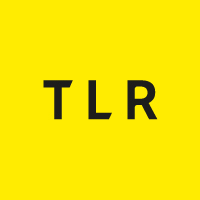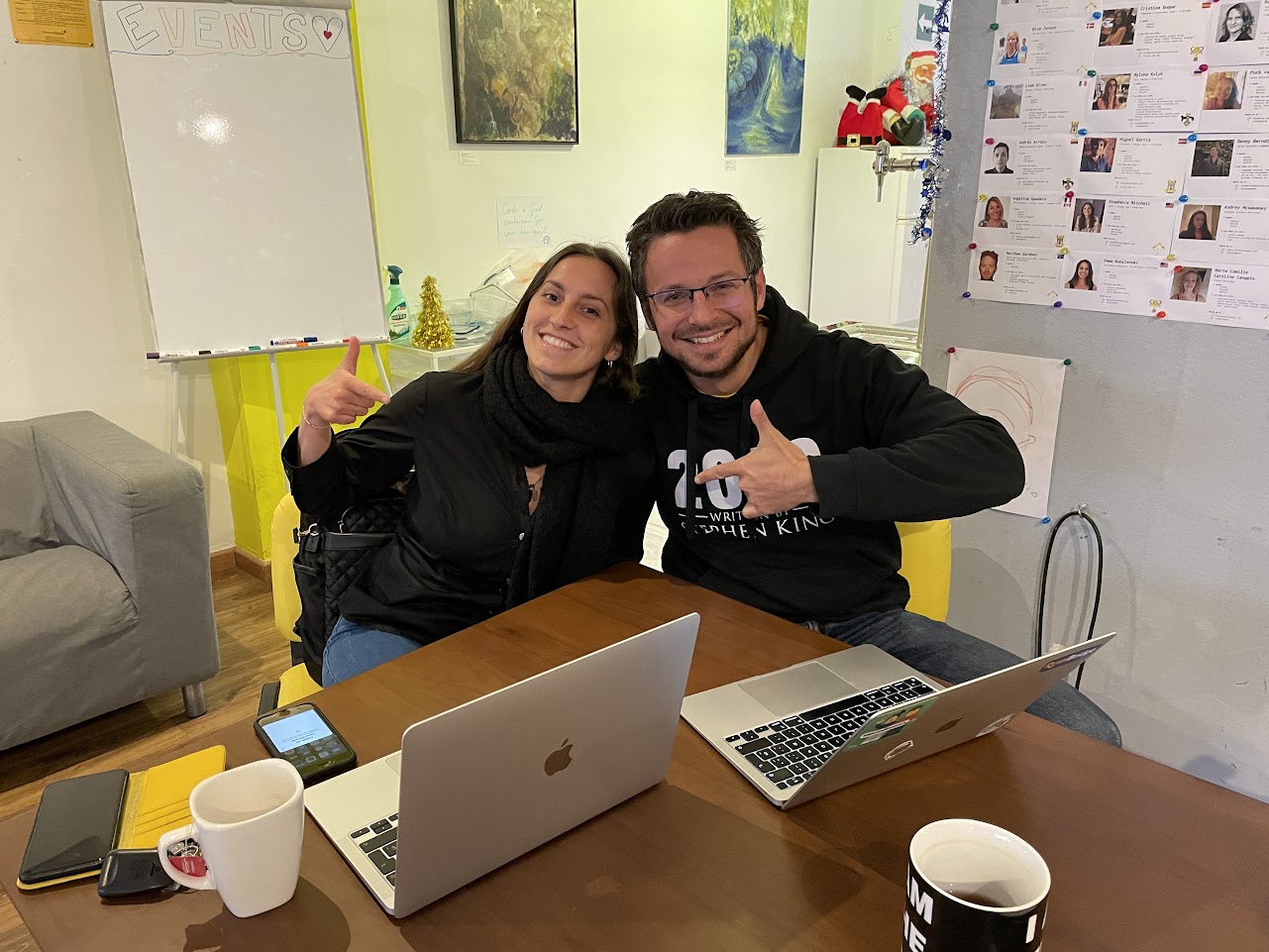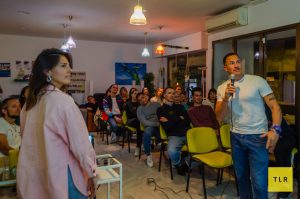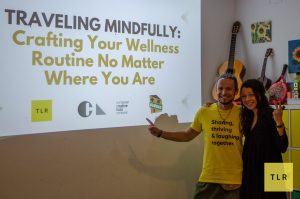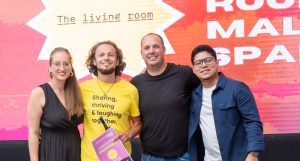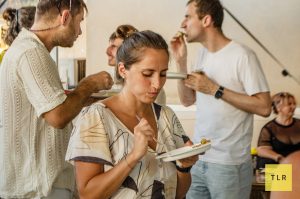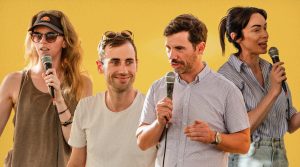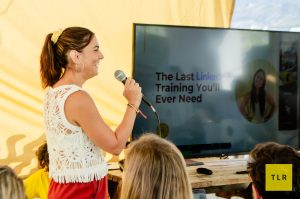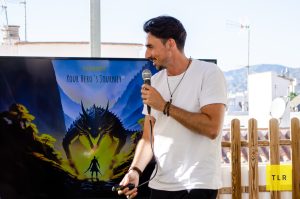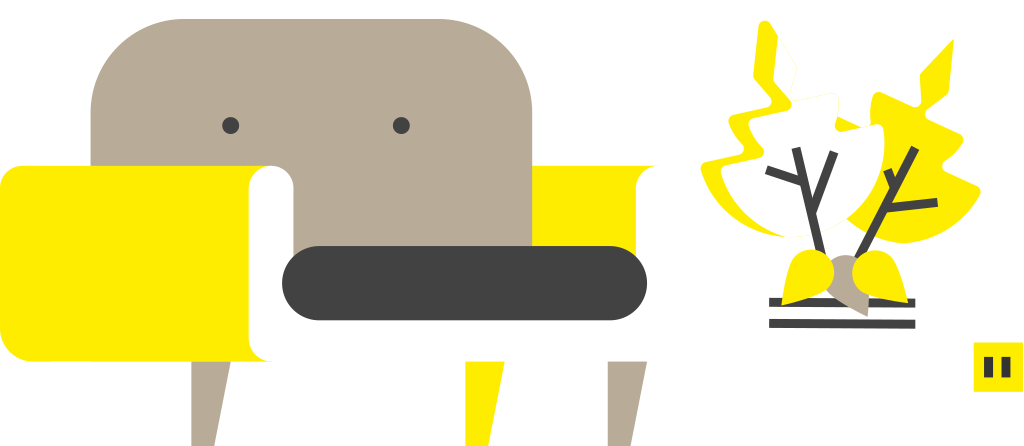Informed by an exclusive interview with Ana Gómez from the Wellbeing Economy Alliance (WEAll), TLR member Kelly O’Brien investigates the role creative hubs and coworking spaces play in working towards an economic system that prioritizes human and ecological wellbeing.
In recent years, there has been a growing recognition that traditional models of economic growth alone are not enough to ensure the wellbeing and happiness of individuals and communities. As a result, the concept of a “wellbeing economy” has gained traction, focusing on holistic approaches that deliver quality of life while maintaining a harmonious balance with the environment.
Within this context, creative hubs and coworking spaces (such as our very own TLR Coworking, based in Málaga, Spain) have emerged as potential key players in fostering and nurturing the conditions necessary for a wellbeing economy to flourish.
Connection and Collaboration
Delving further into this notion, it becomes clear that creative hubs and coworking spaces both provide physical environments where individuals from diverse backgrounds can come together, share ideas, and collaborate on projects.
As such, these spaces often host a mix of freelancers, entrepreneurs, artists, and professionals from various industries. In turn, this rich diversity promotes cross-pollination of ideas, facilitates knowledge sharing, and encourages collaboration.
It is safe to say, therefore, that by fostering an atmosphere of connection and cooperation, creative hubs and coworking spaces undoubtedly generate an environment conducive to innovation and problem-solving. But is this being capitalized upon?
 A group of TLR Family members gathered at the TLR Coworking space in Málaga for the biweekly Business Breakfast where members collaborate and collectively problem solve.
A group of TLR Family members gathered at the TLR Coworking space in Málaga for the biweekly Business Breakfast where members collaborate and collectively problem solve.
Encouraging Innovation and Shared Resources
In our recent interview with Ana Gómez from the Wellbeing Economy Alliance (WEAll), she explains that the wellbeing economy thrives on different models of doing business and putting innovation to work for both people and the planet.
“We want an economy that is working for the people and for the planet and not the other way around – which is what is happening right now,” she says.
Creative hubs and coworking spaces – often hotbeds of entrepreneurial activity – can help shape this vision by providing a supportive ecosystem for individuals to launch sustainable and responsible ventures.
They offer resources such as mentorship, networking opportunities… as well as that all-important access to funding – all crucial for startups to thrive. By nurturing and empowering these entrepreneurs, these spaces already contribute to the development of a vibrant and resilient economy.
Coworking spaces also align with WEAll values in terms of helping to protect nature by encouraging the sharing of resources such as printers, electricity, air conditioning etc.

Ana Gómez from the Wellbeing Economy Alliance (WEAll) who spoke with Kelly O’Brien from TLR recently.
Promoting Work-Life Balance
Another fundamental aspect of a wellbeing economy is recognizing the importance of work-life balance and personal wellbeing.
Creative hubs and coworking spaces play an important role in this area also in that they can help foster flexible work arrangements which enable individuals to tailor their schedules and create a harmonious balance between work and personal life.
In addition, these spaces also often incorporate wellness initiatives such as yoga classes, meditation rooms, and wellness programs to support the holistic wellbeing of their members.
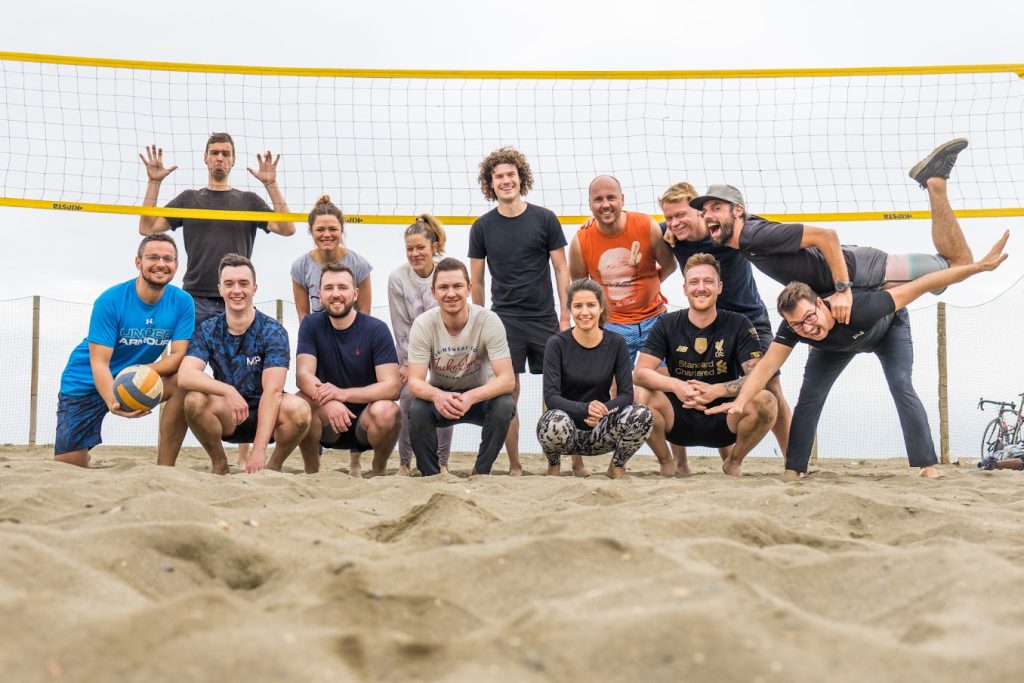 TLR Family members pictured at the weekly volleyball game organised by TLR Coworking – the perfect example of a good work/life balance! Pic courtesy of Agnes des Bois.
TLR Family members pictured at the weekly volleyball game organised by TLR Coworking – the perfect example of a good work/life balance! Pic courtesy of Agnes des Bois.
Enhancing Local Communities and Social Cohesion
According to Ana, WEAll’s approach is about “connecting people, organizations, individuals, businesses, networks, communities, and citizens to help move us to a wellbeing economy.”
This ethos can also be found in coworking spaces, which often host events, workshops, and exhibitions that are open to the public – thereby encouraging interaction between members and the wider community.
By acting as community hubs, creative spaces contribute to the cultural and social fabric of their surrounding neighborhoods, promoting local talent, and contributing to the overall wellbeing of the community.
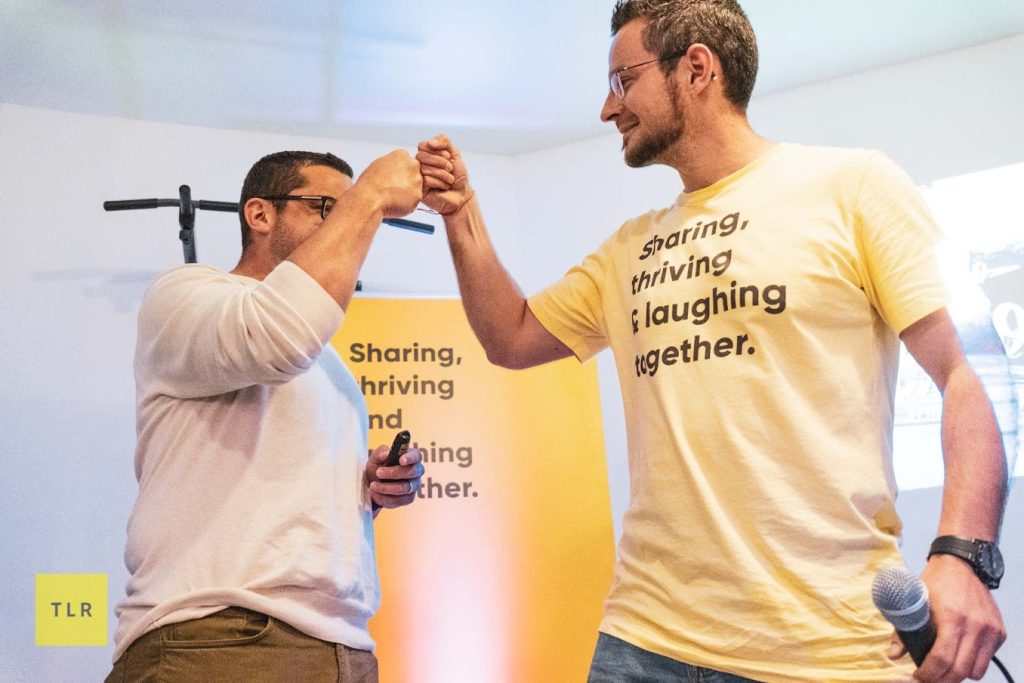 TLR Family member Andrés González and TLR Owner Ben Kolp pictured at Andrés’ talk on solar energy. Every month, TLR hosts an informative talk at the coworking space. Pic courtesy of Agnes des Bois.
TLR Family member Andrés González and TLR Owner Ben Kolp pictured at Andrés’ talk on solar energy. Every month, TLR hosts an informative talk at the coworking space. Pic courtesy of Agnes des Bois.
Advocating for Policy Change
To achieve a wellbeing economy on a broader scale, however, it is necessary to advocate for policy change at local, national, and international levels.
WEAll’s Ana Gómez believes in the importance of “influencing policy, influencing the decision-makers, and making sure that the economy and the systems that we have in place are designed to work for everybody, including the future generations and the planet.”
Creative hubs and coworking spaces can play a part in this area also, daunting though it may seem. With their diverse and engaged communities, these spaces undoubtedly have the potential to mobilize and amplify voices for policy reform.

Embracing a Paradigm Shift
Summing up nicely, Ana explains: “We need to change the way that we understand the economy and the way that we understand progress.”
Could part of this shift lie in changing how we fundamentally view creative hubs and coworking spaces? Instead of merely perceiving them as air-conditioned offices or quiet places for meetings, can we reframe these spaces in our minds and see them as something more profound? What if we consider them as catalysts for positive change, platforms for collaboration, and open spaces for meaningful discussions?
Ana strongly advocates for this type of mindset change, and she encourages every member of TLR Coworking to take a simple yet powerful step right now – foster curiosity and awareness about their lives and the world around them.
“I believe it’s important to be conscious about our actions. Life consists of decisions, many of which we make on autopilot. From the moment we wake up in the morning, our choices dictate what we wear, what we eat, how we live, and even how we connect with others. It’s also about the decisions we make regarding our livelihoods and the things we choose not to do.
Ana encourages everyone to first think about their own lives and their own decisions and, if they want to help affect collective change, to get involved with a trusted organisation such as WEAll.
She also believes it would be valuable if interested individuals could help create participatory spaces where people can engage in discussions about vital topics like Food, Housing, Education, and explore their interconnectedness.
* To get involved with WEALL, check out the website here. You can learn more about WEAll’s Iberia Hub here.
About Kelly

With professional and educational backgrounds rooted in journalism, Kelly works as a freelance writer – crafting tech content, marketing pieces, social media texts, and newspaper articles.
Originally from Kilkenny, Ireland but currently living in Málaga, Kelly runs her own company called Kelly Mary Media OU and has been a TLR Family member since August 2021. When she’s not knee deep in work, Kelly is off trotting around the globe, documenting her many weird and wonderful (and sometimes cat-accompanied) adventures on her Instagram account @thesecornersoftheworld.
To read more blog posts by TLR members, check out our blog feed here. You can also click here to learn more about TLR subscriptions.
